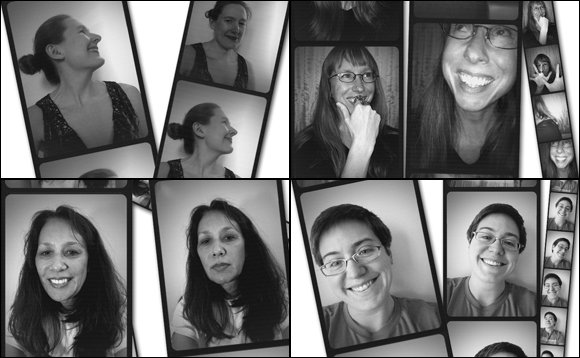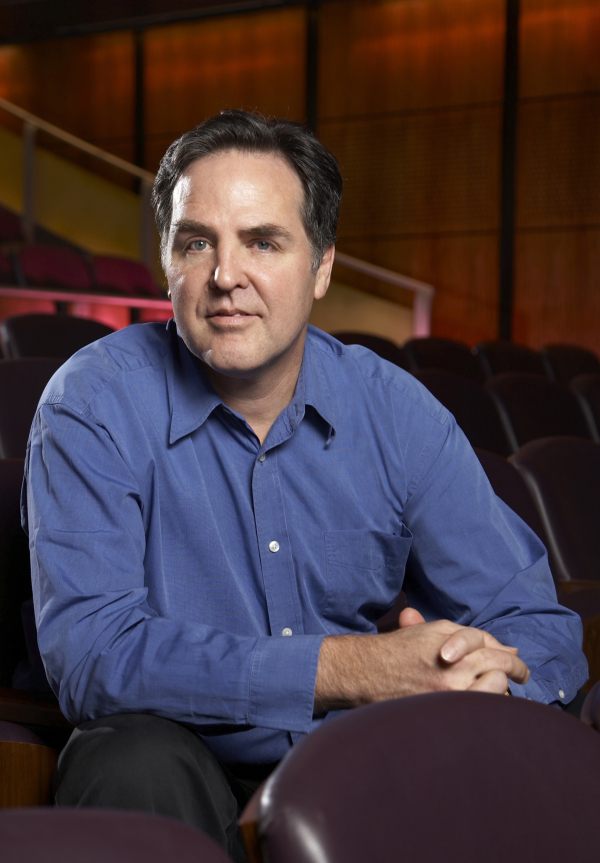Why Playwrights Horizons Isn’t Talking About the Gender Imbalance in Their Current Season

(courtesy of Playwrights Horizons)
There’s a pretty huge gender imbalance in not-for-profit off-Broadway theater company Playwrights Horizons‘ current season (kicking off right now with Mr. Burns, A Post-Electric Play). Though they’re not exactly keeping it a secret, no one seems to be talking about it, either. And that’s great.
Out of the six plays Playwrights Horizons is producing in the coming year, all but one is the work of a woman. When asked why that is, an unfazed Tim Sanford (who has served as the company’s artistic director for nearly 18 years) responded, “Why is that? Why isn’t it?” He went on to explain that, for the most part, Playwrights put no active effort into curating a season so heavily weighted toward female playwrights.”I’m thinking about questions of style… It’s really the play itself, how well it does, how well you do with it that matters.”
Despite Sanford’s blasé attitude, Playwrights Horizons’ new docket is an anomaly — though not completely unprecedented. For the last five years, the work produced during Playwrights’ seasons has been split pretty evenly between male and female writers. Three of the five years even featured times in which plays by women accounted for over half of the shows being produced, but nevertheless, no one season has ever been this heavily weighted toward women. Similarly, as Sanford himself pointed out, several other off-Broadway companies boast roughly gender-balanced lineups this year, but Playwrights Horizons is unique in terms of size, reach, and percent of work created by women.
“We are just being surrounded by lots of really interesting female writers,” explains Madeleine George, playwright of The (curious case of the) Watson Intelligence, about her feelings regarding the current artistic climate for women. “It feels kind of vigorous and healthy and balanced right now…,” she continued, “there’s a sense of this upward surge of women, but really it’s just a kind of surge to equilibrium.”
Rather than the end result of that surge being more plays that appeal to women, George feels that equilibrium will result in even more works that touch audiences on a universal, human level. “A lot of my other plays have female protagonists,” she says. “But it’s not the case that I’m ever like, ‘oh, I better write about gender.’ It’s like, actually, there’s people of both genders in all plays, typically (except for Glengarry), but there’s this sort of pernicious and unspoken presumption that when men are writing, they’re writing about humanity and when women are writing, they’re writing about something particular.”
George doesn’t see her writing as the type that will knock out gender disparity, but ideally, she doesn’t think it should need to. “It may be true that I have female protagonists,” she says. “and I guess I’m hoping that people will assume they’re human.”

(© Christine Gatti)
George’s impression of how Playwrights Horizons came to have a season so heavily weighted toward female writers is that they were able to do just that: see the work of women as universal and written for everyone. Actual gender parity, she thinks, would look more haphazard than seasons that fall at 50/50 year after year. “You’re going to have some years that look very girly,” she reflects, “but [Playwrights Horizons] have had [others] that have been in the other direction. So I think it definitely reflects well on their radical politics, but not in the way that people might think — they didn’t put it together that way.”
When it comes down to it, Playwrights Horizons probably isn’t talking much about the gender politics of their season because gender just isn’t the driving force behind the company’s selection. “I might have a season where I have two plays by women and four by men again,” said Sanford, “because that’s just the way the commissions come in.” But Sanford and his team do seem to be the vanguard of a new trend toward gender parity off-Broadway. “Playwrights is way out ahead of most of the other nonprofits in this respect,” George reiterated. From her perspective, it’s the content of the work that Playwrights Horizons has enabled her to produce. “Oftentimes audience members who I would have assumed had some sort of hostility to the content of my plays end up very touched and moved by them in a way that I felt like opened up connection between groups of people — whole groups of people.”
Sanford echoes the sentiment, saying he’s realized that commissioning, selecting, and producing plays is an experience that comes down to a gut-level selection of what works for him and his company. “I can fulfill all of the mission aspects and all of the democratic aspects of season planning and still have as my ultimate criteria: ‘I just really dig this play.'”












